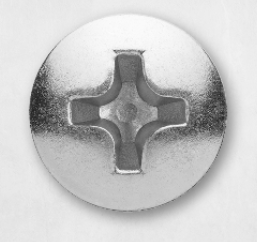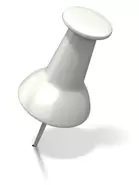Isaiah 40
|
Isaiah 40:7-8:
The grass withereth, the flower fadeth: because the spirit of the Lord bloweth upon it: surely the people is grass. 8 The grass withereth, the flower fadeth: but the word of our God shall stand for ever. |
The glory of man is illusory. It fades. Isaiah says: “Surely the people are grass. The grass withers and the flowers fall, but the word of our God stands forever.” (Isaiah 40:7-8).
Paul concurs. He says God has intentionally made man “subject to vanity.” (Romans 8:20). We like things that have no value. God says: “How long will you people refuse to respect me? You love foolish things, and you run after what is worthless.” (Psalm 4:2). We spend our lives engaged in worthless pursuits. We worship “unrighteous mammon.” (Luke 16:9). We are led astray by “the deceitfulness of riches.” (Matthew 13:22). These riches are “uncertain.” (1 Timothy 6:17). They “make themselves wings; they fly away like an eagle toward heaven.” (Proverbs 23:5). We put our treasures on earth, “where moth and rust destroy and where thieves break in and steal” (Matthew 6:19). But we ignore God, “the Desire of All Nations.” (Haggai 2:7). “We are not mindful of the things of God, but the things of men.” (Matthew 16:23 Like the foolish Chaldeans “who rejoice in their ships” (Isaiah 43:14), we rejoice in our cars, our houses, and our possessions. But Jesus says we should rejoice for only one reason: “because (our) names are written in heaven.” (Luke 10:20). He points out that: “What is highly esteemed among men is an abomination in the sight of God.” (Luke 16:15). Everything man-made is rubbish to God. Nevertheless, we are mesmerised by them. - Premium Times |
| The word of God is immutable. When Rocky Mountains have crumbled into dust, Gods word will abide. It will stand because it is truth. No truth can pass away. All nature is made up of numerous elements, music on a scale of various tones, and mathematics on two rules: addition and subtraction. The skeptic is converted once he discovers the law to which he can neither add or take away from. An infidel once sought to acquaint himself with the truth of the Bible. "I have been trying to see if I can add or take away anything from it in order to make it better. Sir, I cannot. It is perfect." This, to me, is the best way to define "perfect": I can add nothing to it, or take way from it, in order to make it better.
If we understand the that Biblical record is not a history of natural occurrences of science, geography, or even of man, and we see that it's purpose is to reveal the character of God, then and only then will we see its perfection. |

The word, wait in Isaiah 40:31, means to wrap your life around in such a way that He (the Lord) controls our lives. Now that's different! Yes!
How do we wait on the Lord?
How do we wait on the Lord?
- Put our total trust in Him (Psalm 20:7).
"We will remember the name of the Lord."
Right now you are trusting someone or something. Your life is wrapped around a person, purpose, or a possession. Make sure it is the Lord! - By spending time with Him.
Time alone with God will change your life (Elijah, I Kings 17). - Becoming like Him.
Paul in Philippians 3 wanted to win, gain, know, and apprehend Christ.
- You will move forward in your faith.
...Shall renew, walk, run, and soar like an eagle. - You will exchange your strength for His.
The word, renew, literally means to exchange. Now ready for a no brainer? Do you want your strength, or God's strength? - "You will mount up with wings as eagles."
The eagles can soar through the atmosphere, not by their own strength, but they literally lock their wings in place and let the wind take over. -Lone Prairie Baptist

God spoke through the Prophet Isaiah to encourage the people of Israel to keep their hope and faith alive with those comforting words. Isaiah started the passage with questions: have you not known; have you not heard? The older generation ought to have known about the awesome power and mighty deeds of the Almighty God in their lives. The youths, who may not have had personal knowledge, must have heard about the awesome power and mighty deeds of the Almighty God. The everlasting God and Creator of heaven and the earth does not get tired and is able to empower and strengthen the weak to do more than they could ever imagine.
Note that waiting for the Lord does not mean sitting around, folding our arms, and doing nothing while expecting manna to fall from heaven. Observe the passage closely for some of the activities of those who wait for the Lord: They shall renew their strength; they shall mount up with wings like eagles; they shall run and not be weary; and they shall walk and not faint. Renew, mount, run, and walk – are all action words indicating active collaboration by those who wait for the Lord. Those who recognize their weakness and wait by faith for the Lord to increase their strength would be strong in the Lord. Remember that we are talking about God “who gives life to the dead and calls into existence the things that do not exist” (Romans 4:17 RSV). Waiting for the Lord means focusing on the Lord and devoting attention to Him through constant prayers and meditation. It means hope and trust in the Lord that He will do for us that which He has promised to do for us. It means by faith relying on the Lord and His grace and not on our own strength as the youths are wont to do with their false sense of invincibility. It is to overcome our natural tendencies to be in a hurry for what we want, how we want it, and when we want it – which is usually now. It is to broaden our thinking beyond the physical things we see and embrace the spiritual components of things around us. Waiting for the Lord is to address an opportunity we often miss after we finish praying and say Amen. Prayer is a two-way communication between God and us. Yet, we treat it as if it were a one-way communication where we tell God something today and hope to hear from Him another day. We should wait a little after prayers and leave room for the possibility that God may also want to speak to us right away, perhaps to give us some directions that may eventually lead to our desired answer. -Daniel Gyebi; Waiting For The Lord |

I once heard an illustration about how God strengthens us during times of waiting through trials. It went like this: Did you know that an eagle knows when a storm is approaching long before it breaks? The eagle will fly to a high spot and wait for the winds to come. When the storm hits, it sets its wings so that the wind will pick it up and lift it above the storm. While the storm rages below, the eagle is soaring above it. The eagle does not escape the storm; it simply uses the storm to lift it higher. It rises on the winds that bring the storm.
When the storms of life come upon us, we can rise above them by setting our minds and our belief toward God. The storms do not have to overcome us; God will strengthen us during our time of waiting. His power will lift us up above the dark clouds so we can ride the winds of the storm that bring sickness, tragedy, failure and disappointment into our lives. -Bennie L. Robinson; St. Bethlehem Christian Church; Clarksville When burnout threatens to steal your joy, open yourself to God’s energy in prayer. Claim even the smallest space of prayer time as your personal sabbath. It doesn’t have to be impressive. It doesn’t have to be “too much.”
Just talk with the one who made you for more than this. The one who knows that you’re hurting, overwhelmed, exhausted, or hopeless. Come to him, just as burnt out as you are, and draw from the source of energy that never runs out. -Lia Martin;Crosswalk |




